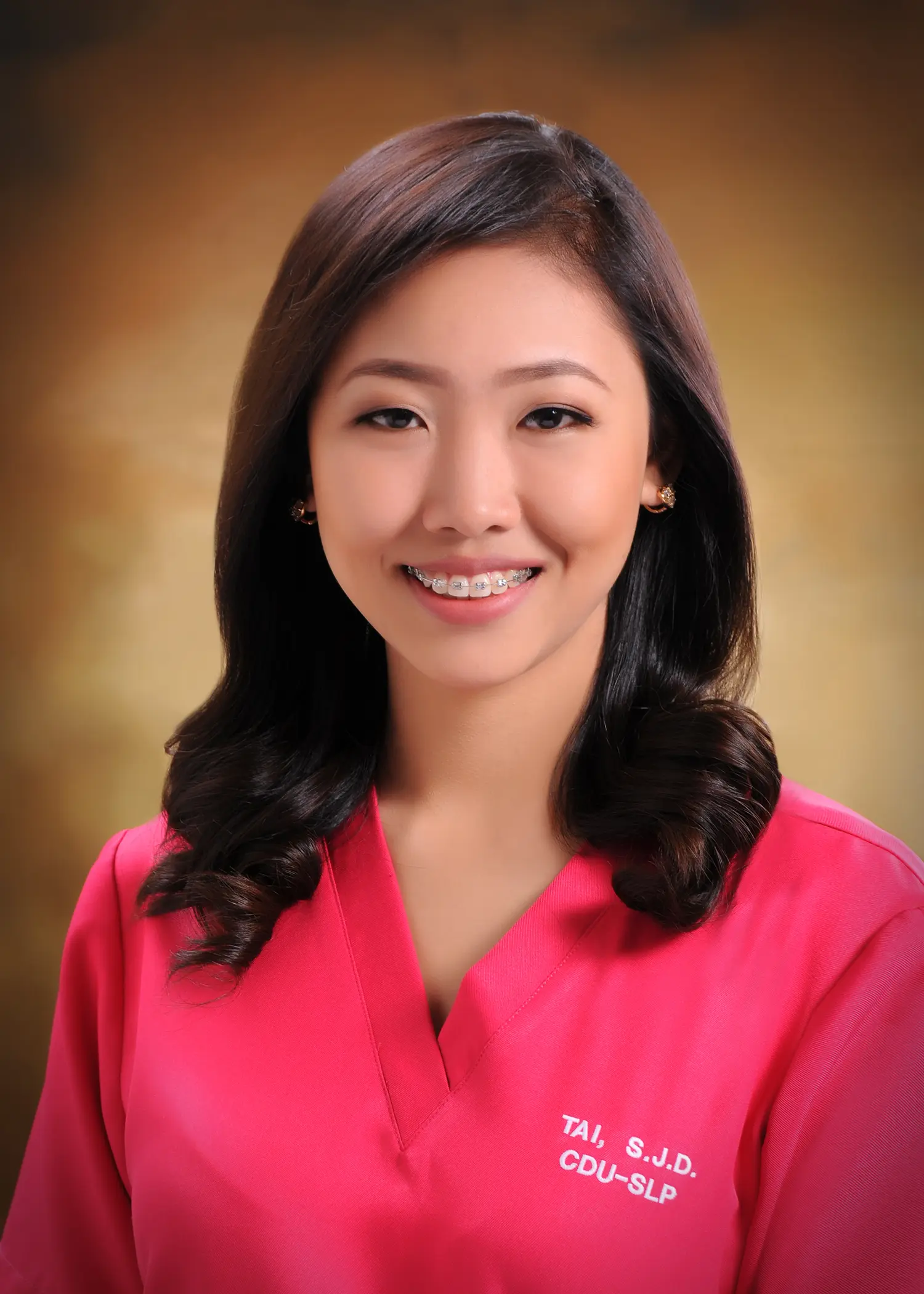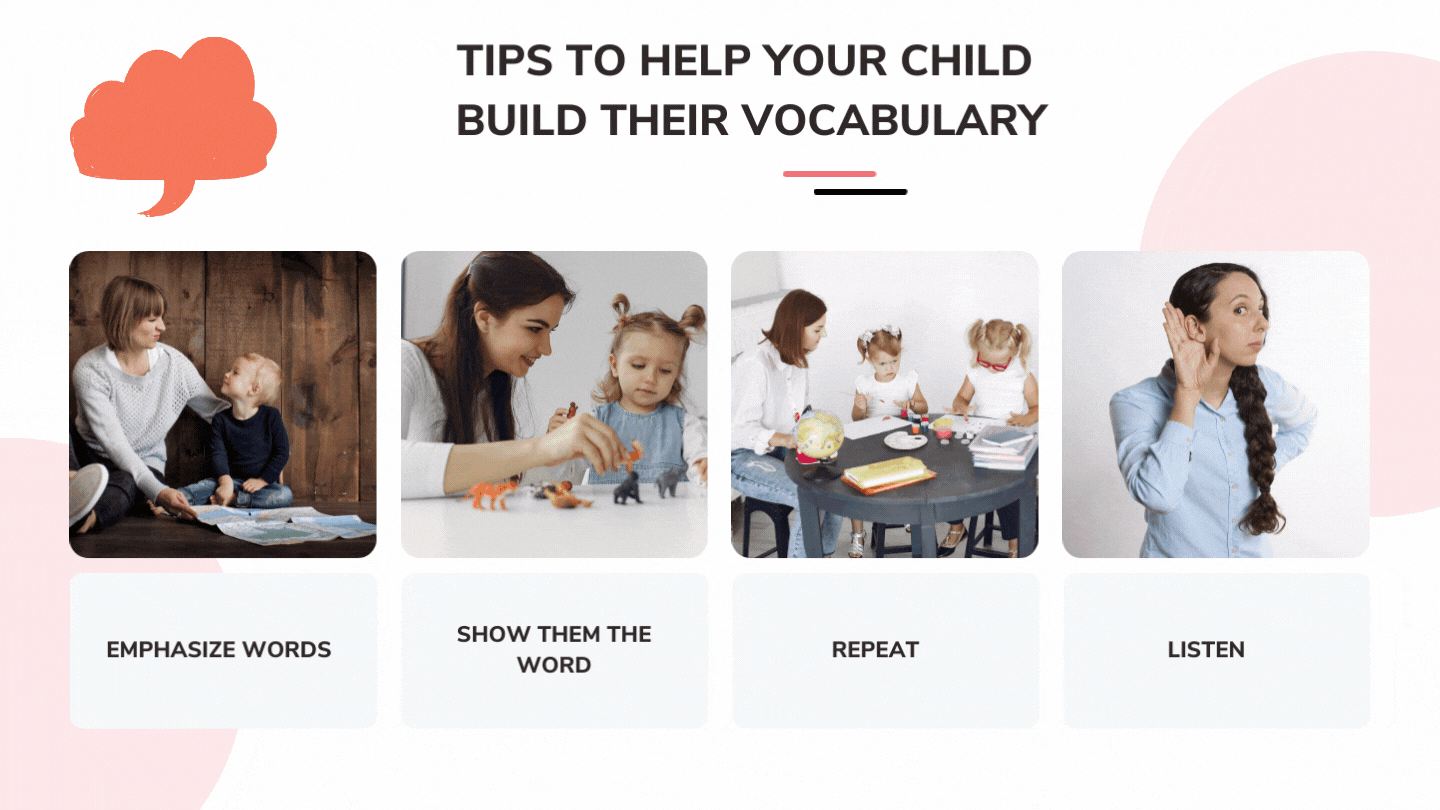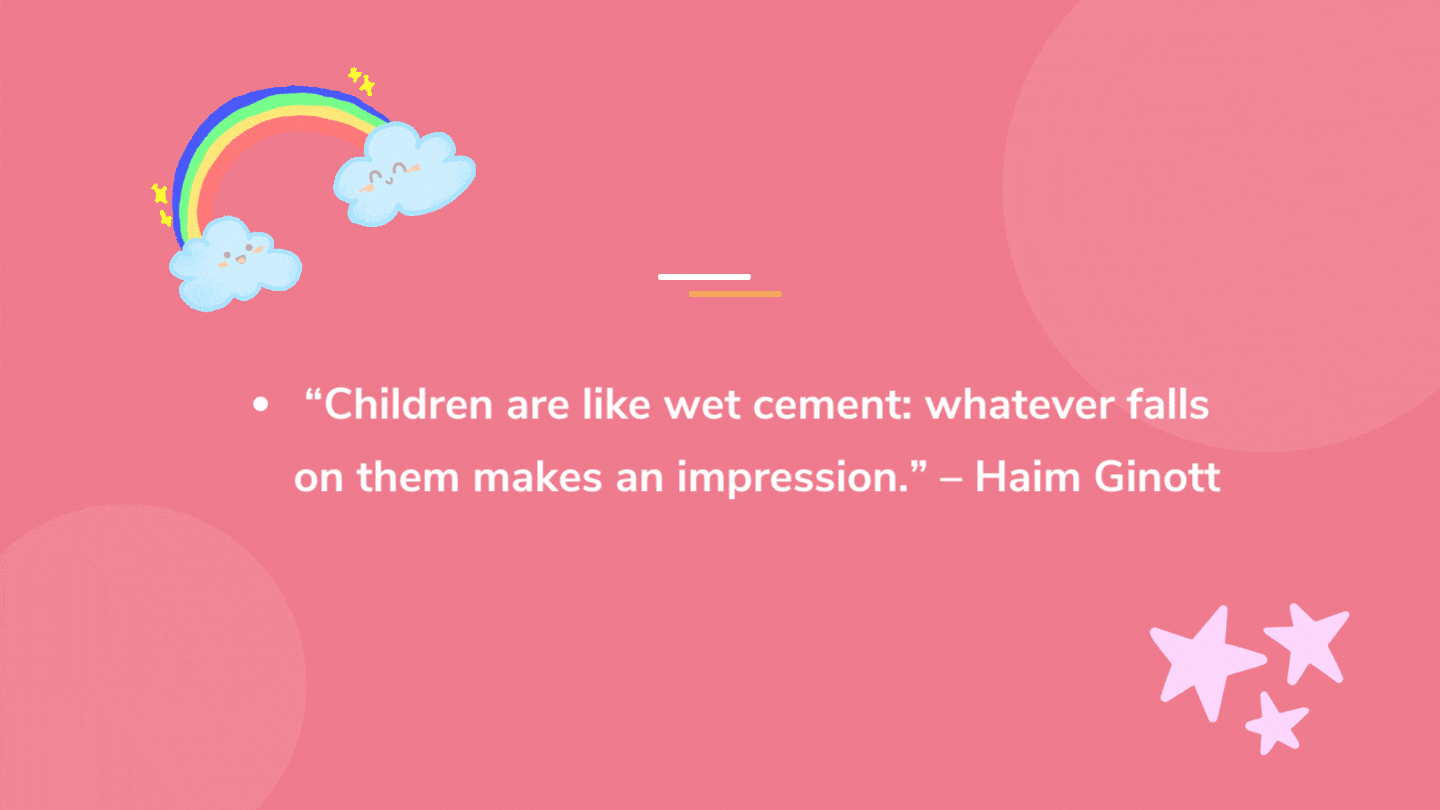How To Help Your Child Learn New Words | Speech Therapy

Shanna Jen Tai
AuthorLanguage development is critical in the first 5 years of the child. Parents are their child’s first teachers so it is important that expecting parents are aware of this so they can guide and provide a lot of opportunities for the child to effectively learn how to communicate.
According to research, parents who repeat words to their infants will have better language skills after a year and that it is important to focus on the quality (how we presented the words, repeat them, used them in conversations) than quantity (how many words we said, talking more to the child).
Helping the child have a large vocabulary greatly contributes to their academic success especially literacy. As this gives them an advantage when it comes to understanding and using different concepts learned at school.
It is also important to note that children develop language at different rates. Therefore, parents should also be observant and continue to monitor their child’s skills. You can do this by accessing American Speech-Hearing-Language Assocation's website https://www.asha.org/ that is rich in information about Speech, Language, Hearing, and Swallowing.
If there are some skills that your child is having difficulty with or other concerns, you might want to consult with a developmental pediatrician for a thorough assessment of your child’s overall development and they will be able to give recommendations if your child needs to be further evaluated by a Speech-Language Pathologist.

Here are important and easy to remember ways to help your infant and toddlers build up their vocabulary.
🔷 EMPHASIZE WORDS – Find out your child’s interests by observing what they usually play with, house objects that they always use, favorite food and drinks, activities they usually do throughout the day. Using their interests will get their attention which is important for learning. Choose the commonly used words at home such as eat, play, open, milk, ball, mama and emphasize it when interacting with your child by using just the word ("ball!"), combining it with other expressions ("Wow ball!") or in simple phrases "big ball". It is important to prioritize words that you want your child to learn so they can eventually use those same words to communicate with you.
🔷 SHOW THEM THE WORD - Remember to position yourself face-to-face with your child. Stress the new word as you say it and make sure to use facial expressions, gestures, tone of your voice or objects to help them attach the meaning of the word. For example, you want your child to learn the word "eat." You can do this through pretend play (feeding a doll and say "yum yum, Eat!"), showing a video ("baby eat"), presenting a picture from books (point to picture of eating) or flash cards, guiding them in doing the action (teach them how to gesture! hold their hand and direct it towards their mouth as you say "eat"), show them (pretend you are eating and say "eat" in a happy tone, pretend to bite in an exaggerated and playful way).
🔷 REPEAT, REPEAT - It helps if they have daily routines or activities followed. This gives them more opportunities for exposure and practice. For example, using the same words eat, milk and open consistently every mealtime until we get a response from them. Repeat these target words with emphasis, insert the words when you interact or play with them and remember not to bombard and overuse the words. There should still be a balance in presenting these.
🔷 LISTEN TO YOUR CHILD - Communicating is a give and take. Give your child some time to process the word you said by pausing after you speak. Wait and listen if your child reacts or makes any attempt to respond. You may mentally count up to 5 seconds before you say or do something else. Acknowledge (through praises, hugs, facial expression, clapping hands etc.) any response from your child as this will motivate and encourage them because they will see that there is an effect (a reaction from you) when they do or say something.

Hope you learned something! Thank you for reading! ❤️